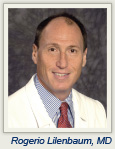Just how many research-focused staff members is it optimal to have when conducting clinical trials in a community-practice setting? To properly gauge that, should the practice look closely at how many studies it’s working on? The complexity of those studies? The number of patients enrolled? Some combination of all three?
 Community physicians just aren’t sure. That’s one of the key challenges soon to be tackled by the Community Research Forum, a new initiative born out of ASCO’s Board of Directors’ Clinical Trial Strategic Plan of 2010, a document that has helped define the society’s role in supporting clinical investigators and increasing their participation in cancer clinical trials.
Community physicians just aren’t sure. That’s one of the key challenges soon to be tackled by the Community Research Forum, a new initiative born out of ASCO’s Board of Directors’ Clinical Trial Strategic Plan of 2010, a document that has helped define the society’s role in supporting clinical investigators and increasing their participation in cancer clinical trials.
Since a large percentage of cancer care takes place in community practices, ASCO decided to get started there.
“ASCO realized that we, the community physicians, have significant challenges to performing research, but that with 85% of the patients being seen in community settings, in order for research to advance more quickly, those issues need to be addressed,” said Community Research Forum chair, Rogerio Lilenbaum, MD, who is Chair of the Hematology and Medical Oncology Department at Cleveland Clinic Florida in Weston, Florida.
Two Tough Issues per Year
Each year, the forum plans to identify two key issues to be tackled on behalf of community physicians involved in research, and to spend much of the year in small groups coming up with ideas, solutions, and then, ideally, benchmarking metrics and solutions to address the problem. The group will meet each fall to discuss its findings. This year’s meeting will be held September 14 at ASCO headquarters in Alexandria, Virginia.
The two issues that the forum is digging in on this year are (1) workload assessment and (2) quality assessment. Those topics were chosen after a survey of community physicians showed that these were two major areas of concern.
Dr. Lilenbaum noted that many community physicians working on trials must appeal to the hospital with which they have a relationship in order to get research assistants and study coordinators, and there is much confusion about what’s appropriate. The forum hopes to end that uncertainty.
Calculations about Staff Numbers Are Underway
“As community physicians, we deal with this every day,” said Dr. Lilenbaum. “Depending on the size and the scope of the research program, how do you come up with a number for a community physician to take to a hospital and say, ‘Look, I need six people, and here’s the ASCO paperwork to support that’?” The forum is working on calculations for that now.
Quality assessment—which translates to making sure your practice’s research enterprise has all i’s dotted and all t’s crossed in the data, and thus is in full compliance with all regulations at all times—represents another area of confusion.
“Compliance audits are done by the NCI, the sponsors, and the FDA,” said Dr. Lilenbaum. “The level of scrutiny is increasing, as is the level of complexity in study protocols. But many doctors don’t even have time to think about how to get ready for that, and then someone shows up at their door, finds major deviations, and puts them on probation.”
This is alarming—and occurs all too frequently, he said.
Coming Soon: Quality Assessment Software
To remedy that, the forum seeks to equip community physicians with a software program that will help them continually assess the quality of their program and identify areas that need improvement. The forum is working on that now.
Community oncologists’ contributions have enormous potential for accelerating the clinical trial process, which is necessary for improving treatment options for patients, Dr. Lilenbaum commented. Just over half of clinical trial accrual is from the community. Yet among practice settings, only 2% to 7% of all patients with cancer participate in clinical trials, and oncologists’ participation is also low, with estimates of less than 20%.
By tackling the concerns highest on the list of oncologists in community settings, where 85% of the patients are, the forum hopes to dramatically change all that. ■
© 2011. American Society of Clinical Oncology. All rights reserved.

